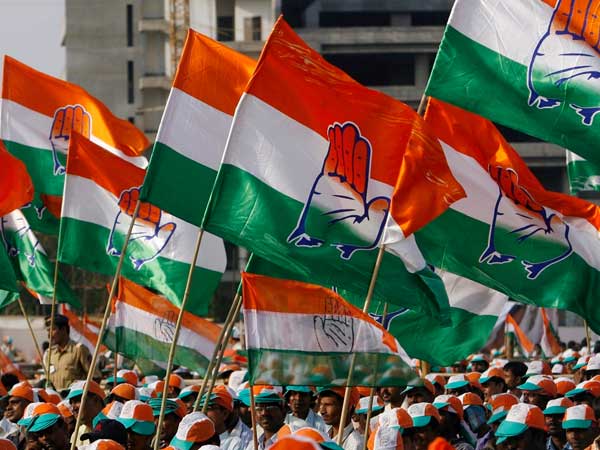Congress at one time was often described as India’s natural ruling party, till its bad days commenced following successive humiliating defeats in the Parliamentary elections and by equally upsetting losses in Assembly polls in many states. The BJP under the overall leadership of Prime Minister Narendra Modi has come to dominate the political scenario through clever thinking and well thought through strategies.
Consequently, the Congress has been struggling to keep itself relevant in the country and is now making its one final attempt at bouncing back. Operation Vibheeshan launched by the BJP in 2014, which entailed enlisting Congressmen in the saffron brigade to defeat the grand old party has proved successful in several regions. However, over a period of time, Congressmen, who may have lost power, but understand power politics better than most of their counterparts in other parties, have also devised a way of flourishing.
In the recent Rajya Sabha polls, at least four politicians who did their political apprenticeship in the Congress have made it to the august House with the backing of the BJP and its allies. The four—Ashok Chavan, Milind Deora, R.P.N. Singh and Harsh Mahajan, would never have dreamt that they would make it to Parliament, had they remained in the Congress. They are amongst a large number of leaders who have benefitted immensely by shifting their loyalties to the BJP or its associate parties.
Had they stuck with the Congress, they would have remained on the sidelines while nursing high ambitions. In other words, the defections have paid off, and their training with their mother party has assisted them in achieving what was virtually impossible at one stage. The irony of it all is that none of these leaders have a mass appeal like many of their former colleagues with whom they would have a reunion under their new banner.
The question which arises is that when none of the four and many before them, with the sole exception of Himanta Biswa Sarma, bring nothing to the table, what has the BJP gained by their entry? The argument can be that their exit from the Congress would contribute in weakening their earlier outfit and that is how the BJP can reap political dividends by allowing them to be its members.
This is a fallacious assumption since all these leaders had been successful earlier because the Congress leadership was acceptable to the people at that stage, and by giving them tickets, enabled them to scale political milestones. On their own steam, they could not have been in any position to enhance their status. Thus by virtue of their earlier positions, they negotiated their entry into the BJP.
The Congress Working Committee even now has majority of members, who cannot on their own steam, win even a municipal election. The likes of Kamal Nath and Bhupinder Singh Hooda are very few and can be counted on fingers. But those who have left for greener pastures elsewhere, owe their bargaining ability to the training they received in the Congress. In the past, Jyotiraditya Scindia, Jitin Prasada and some others shifted to the BJP after they had lost in the elections.
The BJP has given them positions, but the question is that how can they contribute to increasing the clout of the saffron brigade since it is the charisma of Narendra Modi alone, which matters when the polls take place? The downside of all these positions going to former Congressmen, some of whom also had cases pending against them, is that they have been chosen at the cost of ignoring many rightful claimants within the BJP or its allies. Their entry must have surely caused a lot of heart burning within the rank and file of the saffron brigade, where many hopefuls saw their chances crashing with outsiders being preferred.
This may have worked for the BJP in the initial stages, but in the long run, it shall have its consequences, so far as the organization goes. In Maharashtra for instance, all the NCP Assembly members as well as their representatives got elected the last time after defeating BJP nominees. Now, they shall be seeking seats from the same areas where they had trounced the BJP rivals, thereby leading to resentment and a feeling of being let down by those who had lost. Those who come from the Congress stable, normally are very street smart and know how to get around obstacles to endear themselves to the leadership.
In the Congress, besides learning the tricks of the trade in power politics, they are also well versed with the art of sycophancy. That is what they have done all their lives to achieve political milestones. First it was the Gandhis they were subservient to and now the BJP’s central leadership. In both these instances, their contribution in adding value to the overall results has been negligible.
These former Congressmen, however, would continue to thrive, this time under new masters while many of the BJP loyalists, who have spent their entire life for their party would continue to wait for their turn to be recognized. The exodus of Congressmen into the BJP, would in the long run, lead to changing the work culture within the saffron brigade. Congressmen are trained to assert themselves while the BJP workers are more disciplined and look towards their leadership to do justice. Those who have won these prized positions may now use their status to seek further patronage from the BJP high command.
Between us.

